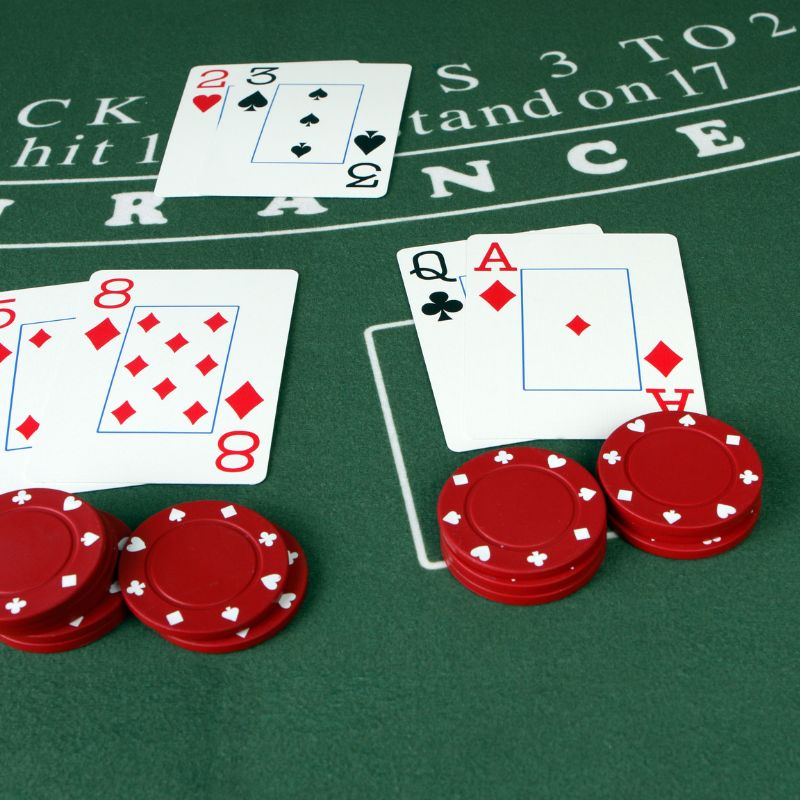Do Other Players Affect Blackjack Odds? Bad Players at the Table
When you’re at a blackjack table with others, each person may have their own way of playing the game- this can add a social element to the experience, as players bring different strategies and levels of experience.
If you’ve seen someone make an unusual move, you might question whether their actions influence your outcome. Understanding how one player’s decisions might impact the rest of the table can help you approach the game with more clarity.
Here’s a look at how the choices made by others could, or might not, affect your own results in blackjack.

Do Bad Blackjack Players Hurt the Table?
Blackjack is different from some other casino games because players do not compete against each other. Instead, each person plays directly against the dealer. The dealer must follow a fixed set of rules—usually drawing cards until reaching a total of 17 or more. These rules are applied consistently, no matter how individual players decide to play their hands.
While an unexpected decision by another player may affect the sequence of cards dealt, it does not alter the structure of the game or your overall chances in the long run. Outcomes are determined by the shuffle and the rules that govern how the game is played.
Each hand is independent, and there is no reliable evidence to suggest that another player’s choices will have a lasting effect on your results. People may play according to recognised strategies or choose a more instinctive approach, but the fundamental mechanics remain the same.
Rules can vary slightly between different casinos and platforms, especially online. It might be helpful to check the specific rules before starting a game, so you’re aware of how that version of blackjack operates and what to expect from each hand.
Blackjack Odds Explained
Blackjack is typically played with one or more standard decks of playing cards. The aim is to have a hand total as close to 21 as possible, without going over, and to have a higher total than the dealer. Number cards are valued at their face amount, face cards (Kings, Queens, and Jacks) are worth ten, and the Ace can count as either one or eleven, depending on the situation.
A hand that totals 21 with the first two cards—specifically an Ace and a ten-point card—is called a ‘blackjack’. This is usually paid at odds of 3:2, so a £10 stake would return £15 profit in most standard rules. Other winning hands are generally paid at 1:1. If both the player and the dealer have the same total, it’s called a ‘push’, and the original stake is returned.
In the UK, blackjack games that follow standard rules and are played using basic strategy perfectly may have a house edge of approximately 0.5%. This figure can vary depending on factors such as the number of decks in use, specific house rules, or payout rates.
Each hand is determined independently, and outcomes are not influenced by previous results. Blackjack is a game of chance, and while strategies exist to guide decision-making, no system can predict or guarantee any particular outcome.
What’s the Best Number of Players for Blackjack?
Regardless of how many people are playing, each hand is still played individually against the dealer; the fundamental rules of the game do not change based on the number of participants.
When there are fewer players, the game tends to move at a quicker pace. With more players, rounds may take longer, which some people find gives them more time to consider their decisions. Preferences around game speed can vary depending on the individual.
Online platforms often provide options to join tables with multiple participants or to play solo. These tables may differ in terms of betting limits and gameplay features, allowing you to choose a setup that suits your personal approach.
Does It Matter Where You Sit?
In land-based casinos, seats at a blackjack table are sometimes referred to using terms like “first base” and “third base,” which reflect the order in which cards are dealt. In online games—particularly when playing alone—these seat positions are generally less significant.
There is a common belief that the last seat before the dealer, often called “third base,” might have some influence over the outcome. However, your position at the table does not affect which cards are dealt to you or to other players. The shuffle and dealing process is applied consistently, and all players are subject to the same rules.
If you prefer watching how others play or enjoy a particular view of the game, you may choose a seat accordingly. However, the core gameplay and rules remain the same regardless of where you are seated.
Play Blackjack for Real Money at Ivy Casino
At Ivy Casino, you can choose from a variety of blackjack games suited to different preferences and budgets. Each game clearly displays the number of decks in use and any specific rules or limits.
There are safer gambling tools available to support your choices. These include deposit limits, time-outs, and self-exclusion options. You can access these features through your account settings; they’re designed to help you manage how you engage with gambling activities.
Guides and resources are also available on the site. These may help you learn more about blackjack and decide which game type suits you. All games are operated by professional live dealers or regulated software providers, ensuring fair gameplay in line with UK Gambling Commission (UKGC) standards.
**The information provided in this blog is intended for educational purposes and should not be construed as betting advice or a guarantee of success. Always gamble responsibly.
*All values (Bet Levels, Maximum Wins etc.) mentioned in relation to these games are subject to change at any time. Game features mentioned may not be available in some jurisdictions.
